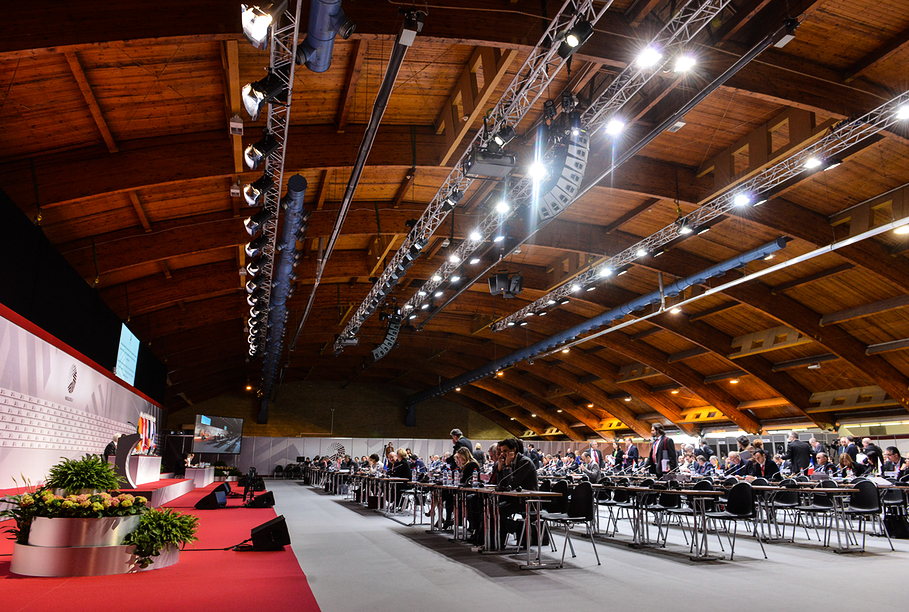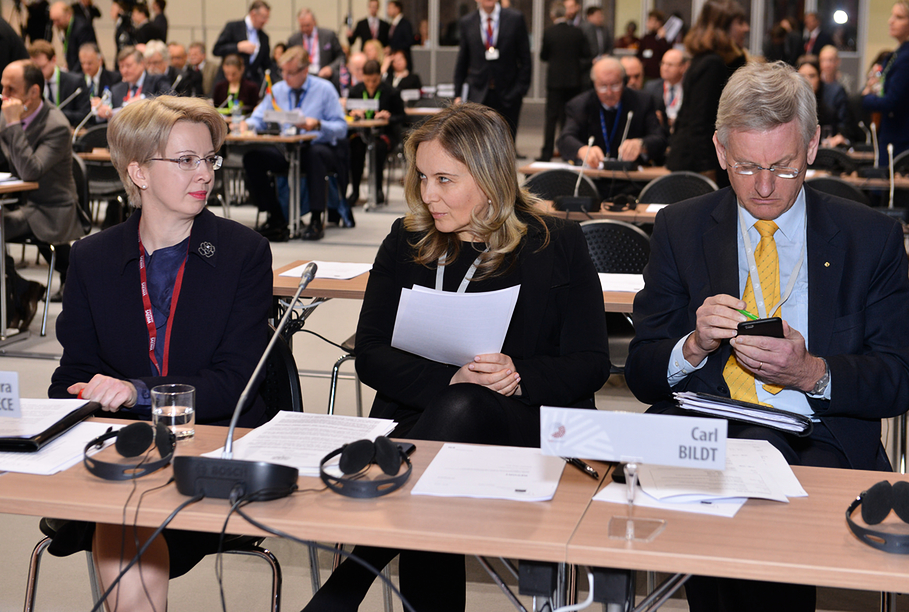The meeting comes as part of a frantic few days of diplomacy under the auspices of Latvia's Presidency of the EU with the foreign ministers of EU member states due to meet in a separate meeting on Friday and Saturday.
Parliamentary speaker Inara Murniece, chairman of the Saeima foreign affairs committee Ojars Kalnins and Foreign Minister Edgars Rinkevics got proceedings under way on Thursday.
"We need... to give a very strong signal from the European Union... that neighborhood policy matters and eastern neighbors matter," Rinkevics told his audience, with one eye on May's crucial Eastern Partnership conference, also due to take place in Riga.
But Rinkevics also warned against expecting too much from May's summit, saying:
"The Riga summit is not going to be the one where the overall policy is reshaped – it's just one step."
Countries that have signed Association Agreements with the EU required a new "package" of assistance including more money from the EU to help them carry through reforms, Rinkevics said, and also held out the possibility of visa liberalization programs with Ukraine and Georgia.
The EU had made a mistake in not addressing the Georgia- Russia war of 2008 more seriously, admitting it was "quite an encouragement to continue."
"We had to be tougher at that time. But overall we did our best to engage Russia in any way possible and overall we were right... at the end of the day it was Russia's choice," Rinkevics said.
"The main deliverable [of the Riga summit] would be the strong commitment of the EU to continue the Eastern Partnership... we have to keep the door open."
However, star of the show was former Swedish Foreign Minister Carl Bildt who was one of the original architects of Europe's neighborhood policy.
In a powerful speech that tackled relations with Russia in an uncompromising manner, Bildt cited the examples of fascist Spain and authoritarian Turkey as evidence of how engagement with Europe can help bring lasting reforms and improvements to other countries.
Those lessons needed to be remembered in the way the EU deals with an aggressive and oppressive Russia, Bildt implied.
"For the forseeable future Russia is far more likely to be a strategic problem than a strategic partner," Bildt said.
"The more we care for Russia and the more we care for its future in Europe, the more critical we must be... to be silent about the trends in Russia today is to show disrespect to the country, the people and its future."
Former Lithuanian foreign Minister Audrinius Azubalis intervened during a subsequent question and answer session to relate neighborhood policy to the Baltic experience, asking: "The European perspective was the driving force for Latvia and Lithuania to make necessary and sometimes painful reforms - why should it be different for Ukraine, Moldova or Georgia?"






























